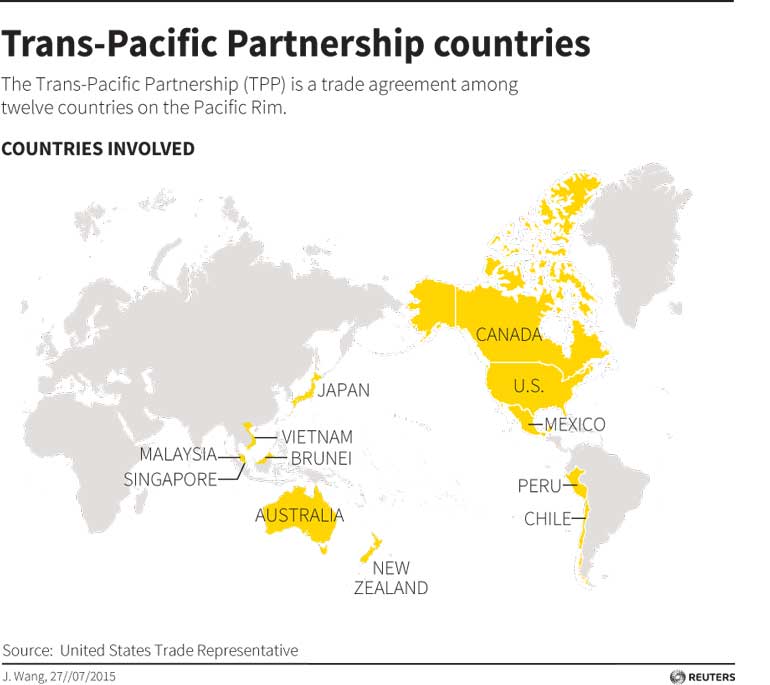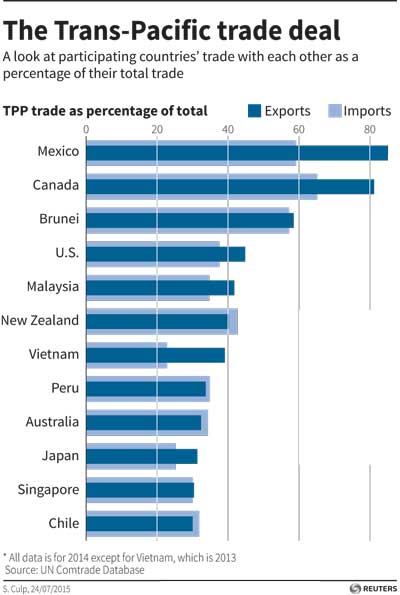Friday Feb 20, 2026
Friday Feb 20, 2026
Thursday, 30 July 2015 00:00 - - {{hitsCtrl.values.hits}}


LAHAINA, Hawaii (Reuters): Ministers from Pacific Rim nations hoping to finalise an ambitious free trade deal this week warned on Monday that hurdles remained including intellectual property and dairy.
The United States and Japan, the two biggest economies in the talks, are both keen for strong intellectual property protections, such as long copyright periods and data protection for next-generation drugs.
Japanese Economy Minister Akira Amari, arriving in Hawaii with his counterparts from the 12-nation Trans-Pacific Partnership (TPP) countries, told reporters that the aim was to produce a win-win outcome for all countries.
“There are a lot of difficulties to overcome with intellectual property,” he said, noting that a series of one-on-one as well as group meetings are planned during the four days of talks ending on Friday.
Mexico’s Economy Minister Ildefonso Guajardo declined to say if he backed the US call for 12 years data protection for biologic drugs but he was confident a deal could be reached.
“We are expecting to close off this agreement,” he told reporters.
Another major sticking point is dairy. Mexico is under pressure to give Australia and New Zealand more access to its markets, while Canada is also so far resisting demands to open up its protected local industry.
“We are looking for what we call commercially meaningful access,” New Zealand Trade Minister Tim Groser told local TV 3 news. Dairy is one of New Zealand’s main export earners.
“I’m not going to be dogmatic about how to define that, but there’s nothing on the table yet that allows me to recommend to the cabinet that we should sign this deal at this point. That’s for the next few days. It’s going to be hard yakka (work).”
Chambers of commerce from many of the TPP countries, which include Singapore, Peru, Chile and Brunei, kept up pressure for an ambitious and comprehensive agreement.
A joint statement from organizations from the United States, Australia, Canada, Peru, Japan, Singapore, and Vietnam said that the TPP had the potential to “create substantial new opportunities for workers and farmers — as well as businesses of all sizes and sectors — across the region”.
The US National Association of Manufacturers said priorities for the deal included strong dispute settlement provisions, the free flow of data across borders and a level playing field with State-owned enterprises.
“Manufacturers will not simply provide rubber-stamp approval for a TPP deal,” NAM President Jay Timmons said.